Enter Password
Incorrect password. Please try again.
Go back to home
Project
Workflow Revamp
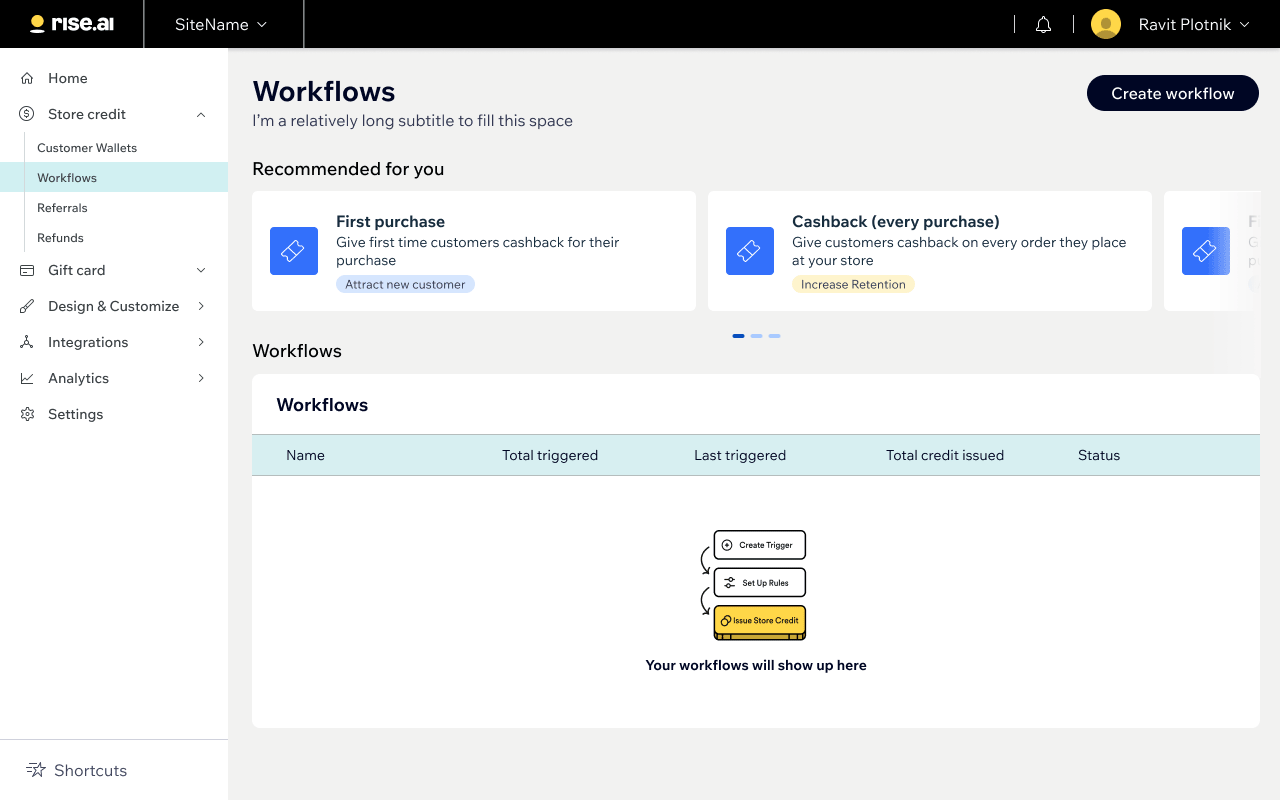
Rebuilding the platform
As part of Rise's post-acquisition pivot, we embarked on an ambitious journey to revamp our entire platform, serving thousands of users, including major enterprise accounts. This significant endeavor required integrating Wix's infrastructure, essentially rebuilding from the ground up while maintaining the legacy platform. Achieving this within a tight timeframe and with limited resources was one of the most significant challenges the company has ever faced.
Main challenges
Create a scalable solution:
Develop a robust platform that can cater to all future
needs that might arise.
Implement a new design system:
Build the solution using the Wix design
system.
Achieve feature parity:
Support all existing use cases, enhance user experience,
and add new functionalities.
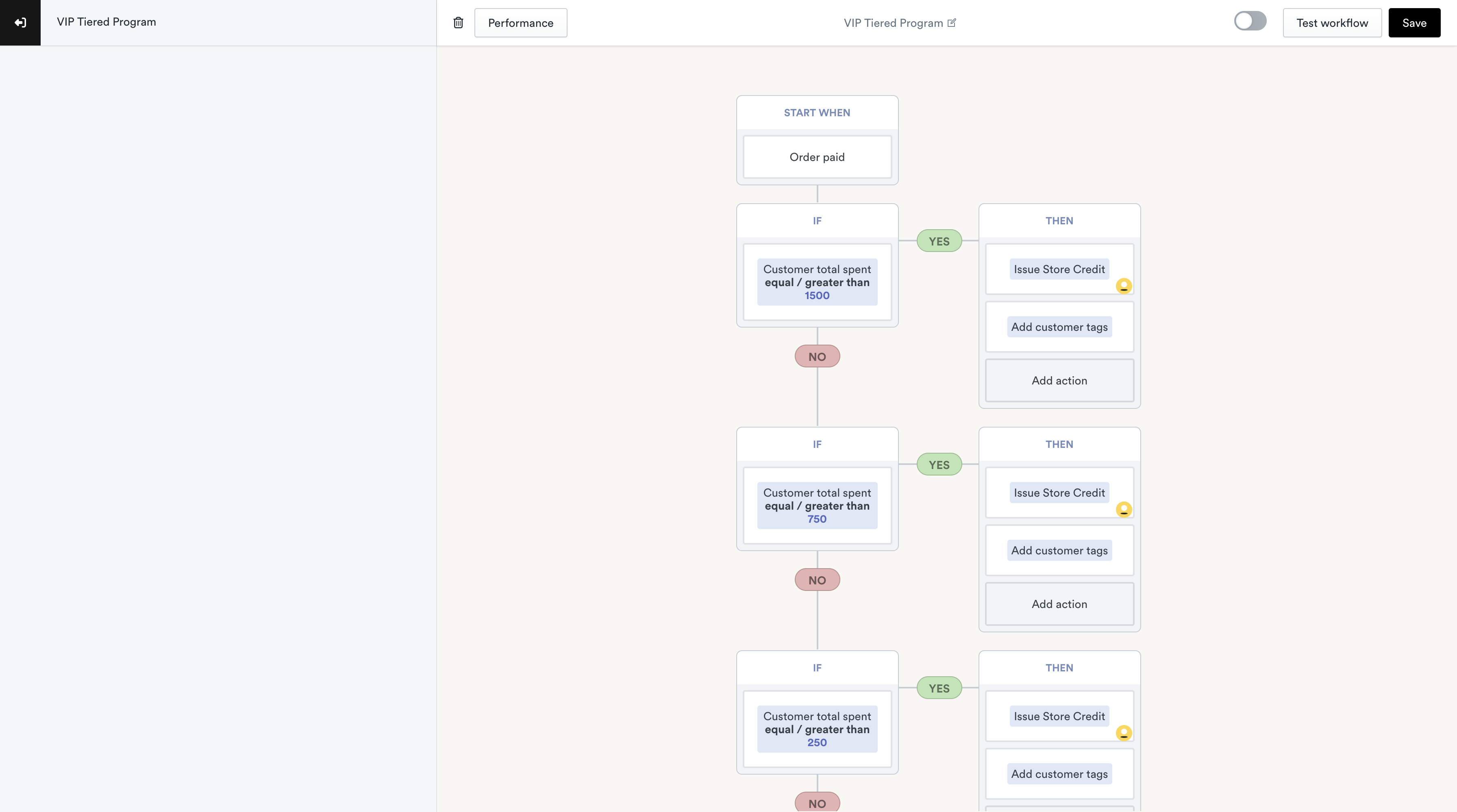
Preview of the old Rise workflows
Competitor analysis
Given the intricate nature of workflows, conducting thorough research was imperative. This
involved a comprehensive exploration of existing solutions to understand their intricacies and
identify potential areas for improvement.
The research phase was structured around a
detailed
presentation, meticulously dissecting the diverse aspects of workflow builders. Each element was
carefully examined, considering its relevance and impact on our specific requirements. Through
this process, we were able to distill valuable insights and formulate informed recommendations
tailored to our needs.
Starting the Design Process
To kick off the design process, I began by creating initial wireframes to establish the foundational structure and layout of the project. I continued by gathering insights from colleagues and stakeholders, ensuring that the wireframes addressed the core needs and objectives. After consolidating feedback from the team based on the low-fidelity wireframes, I moved to higher-fidelity wireframes, creating a few different options to better visualize, feel, and further test the flow.
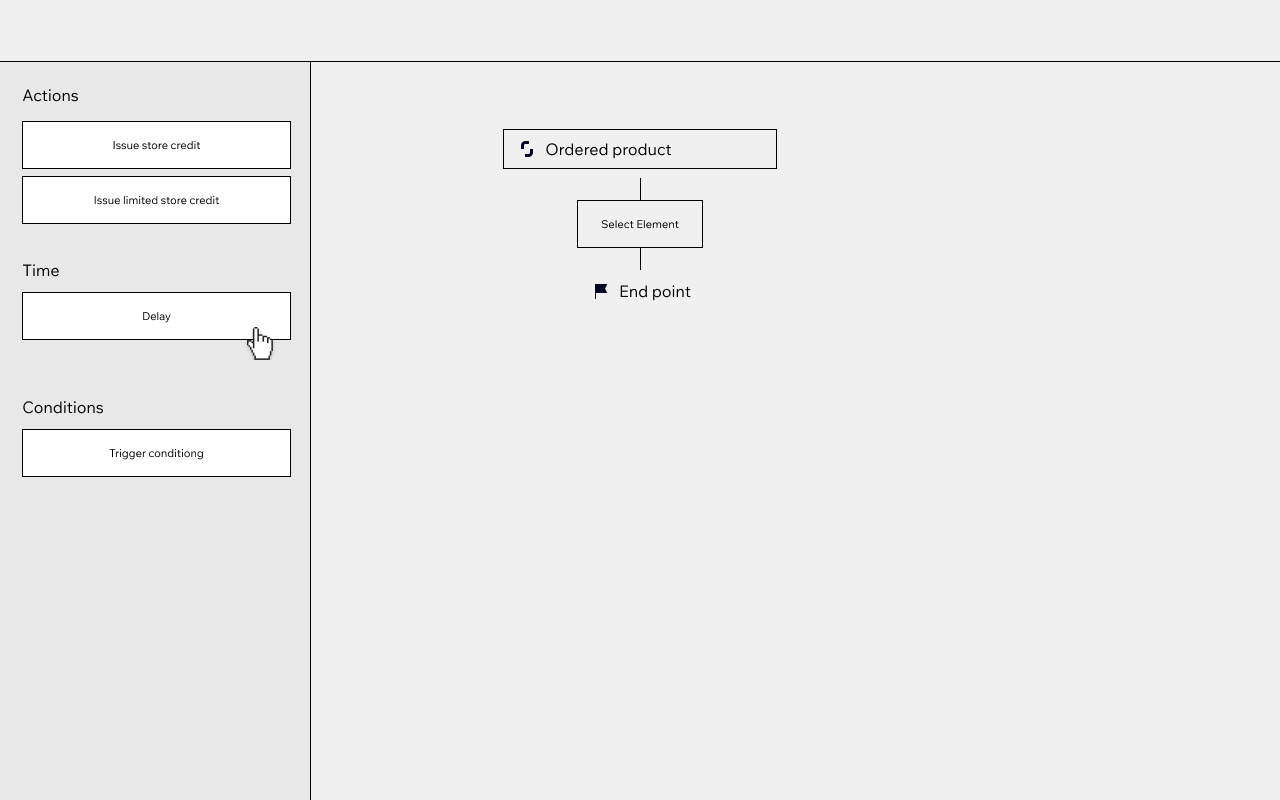
Testing fundemental builder concepts
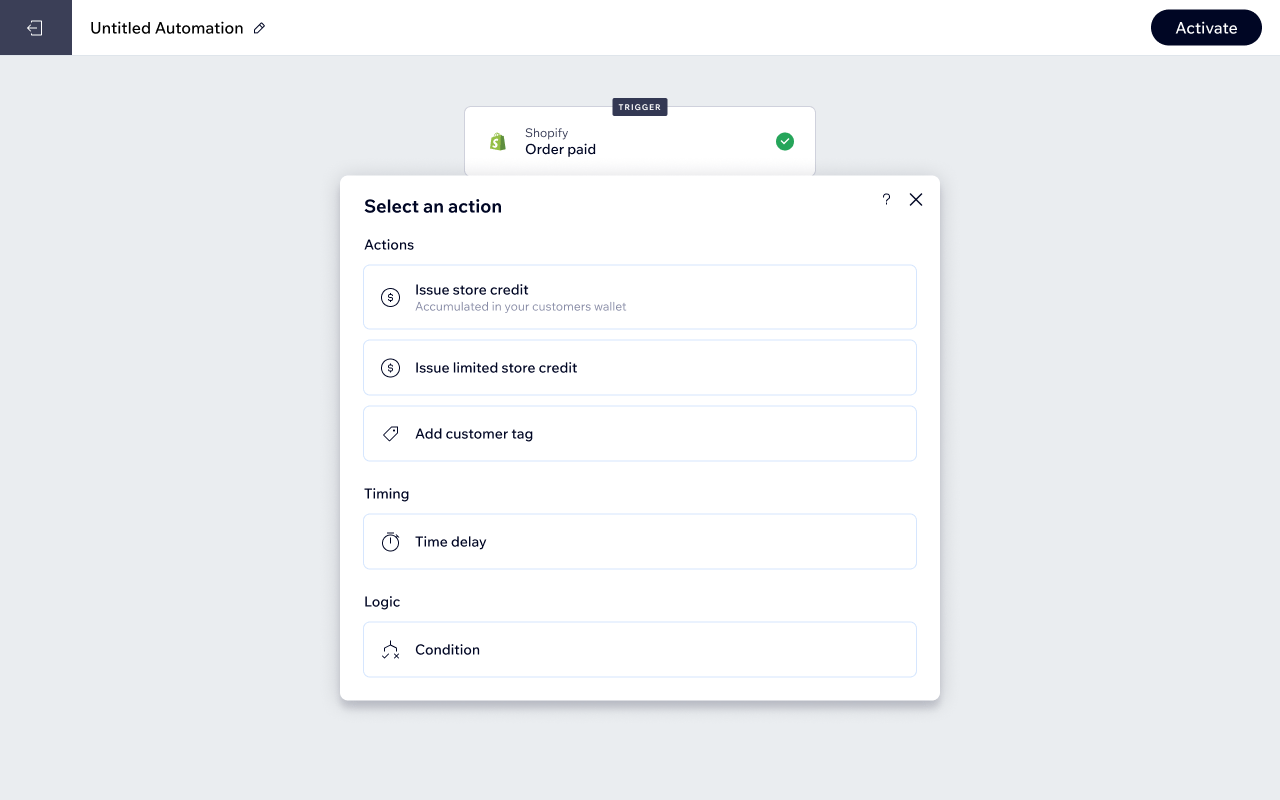
Creating prototypes to get the feel of it
The final design
Due to our tight schedule and limited development resources, our primary aim was achieving
feature parity.
The final design was based on Wix design system with minimal adjustments..
We maintained the core structure while making substantial UI enhancements to enhance usability.
This involved decluttering unnecessary elements and introducing new capabilities where needed.

A glimpse into the final flow
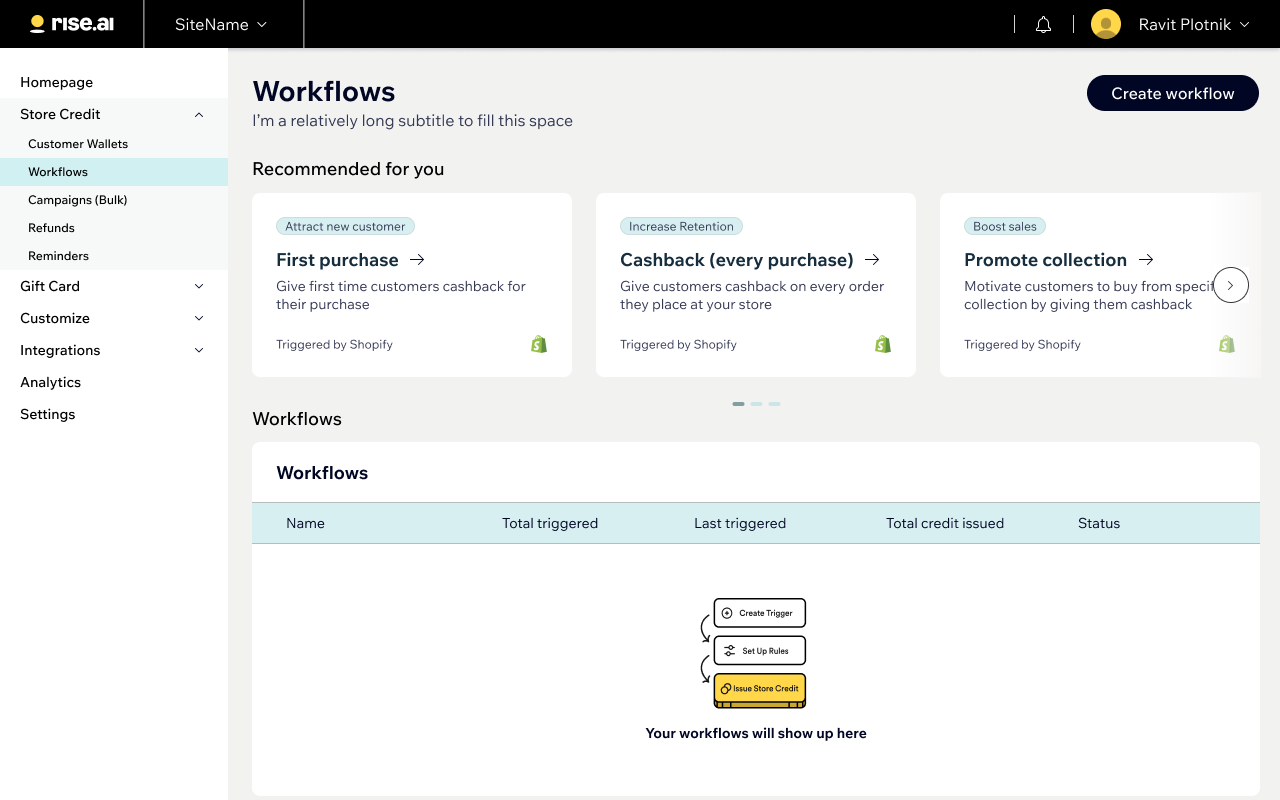
New empty state
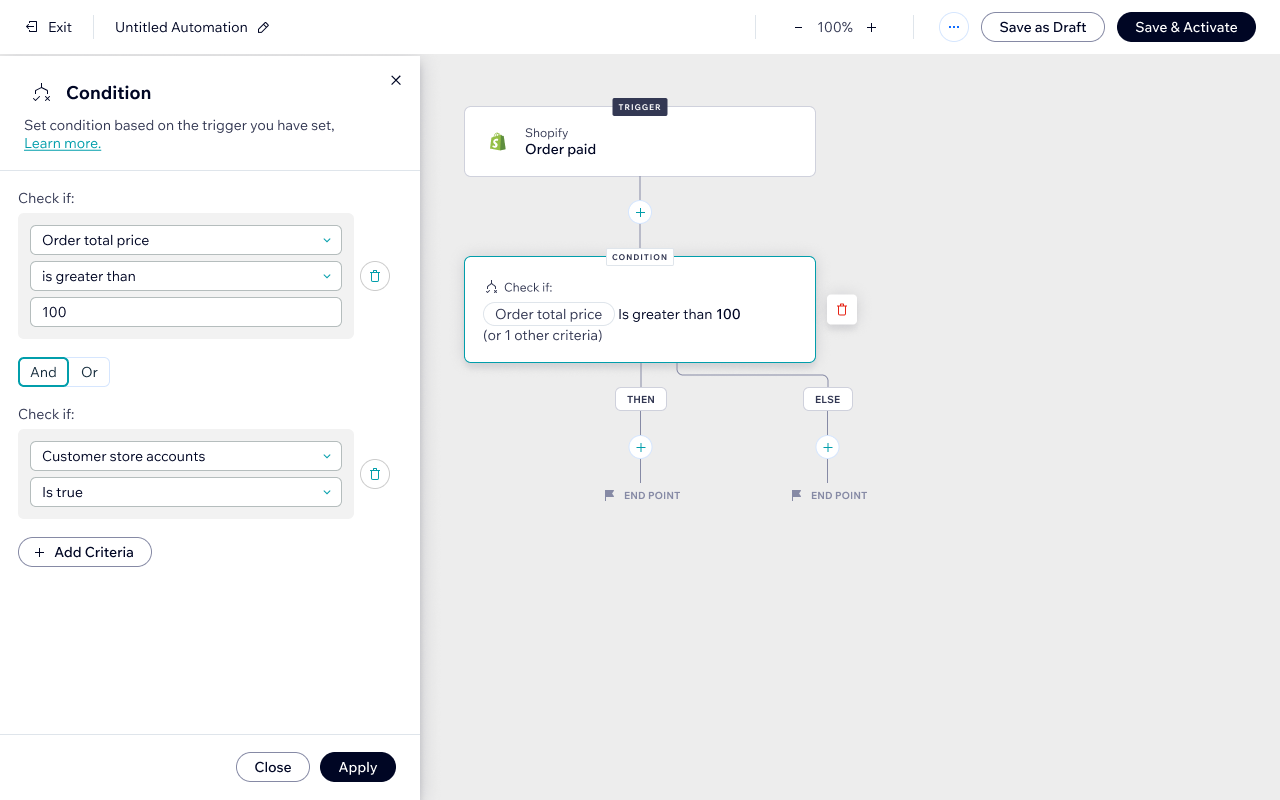
New workflow builder
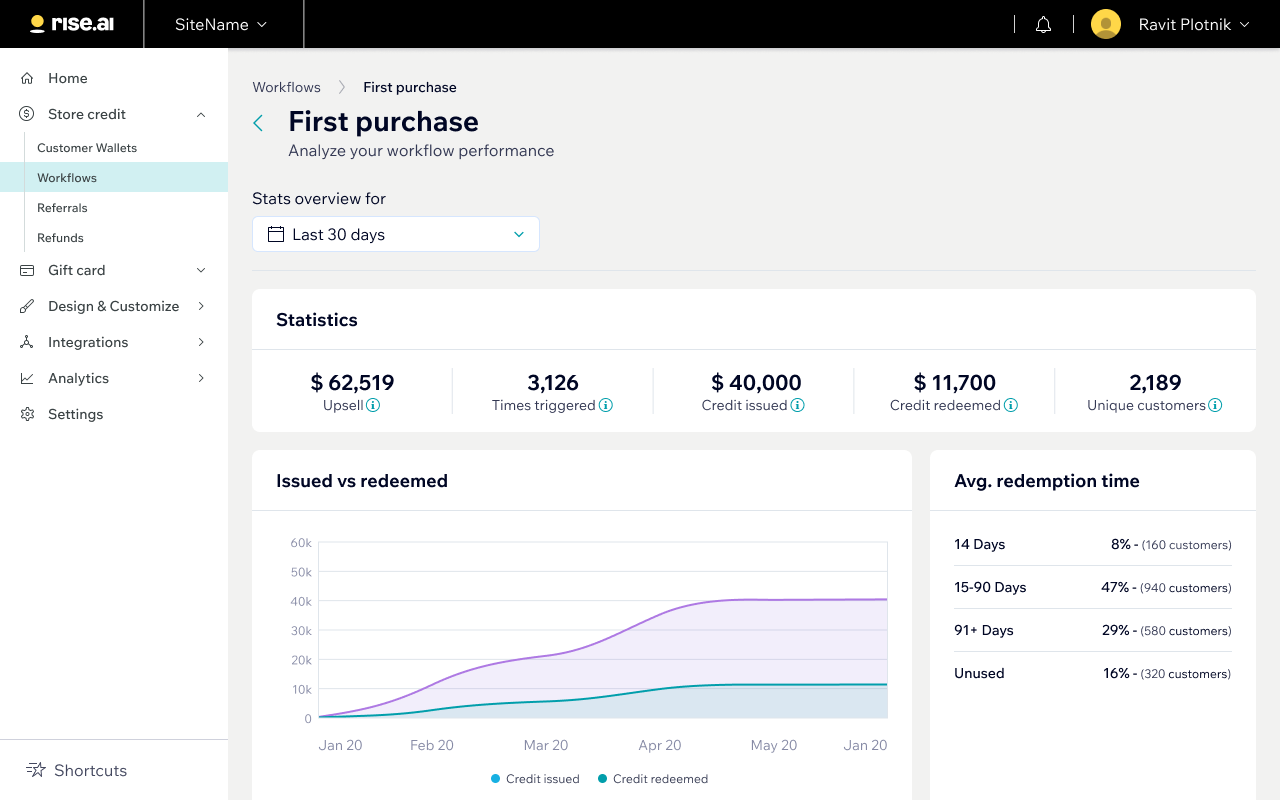
New analytics page